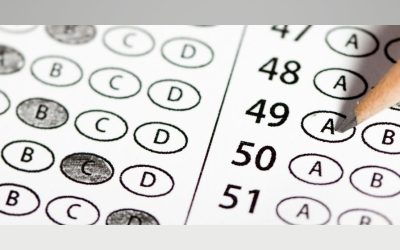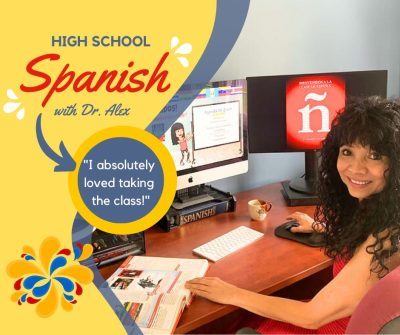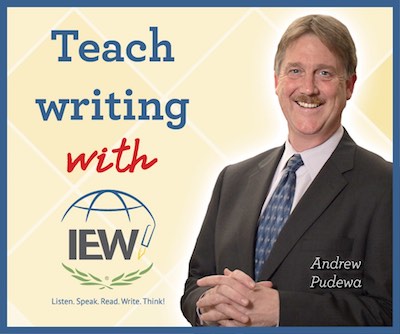Anyone who reads the media reports1 about Raylee JoLynn Browning will be sickened, saddened, and angered. We will all rightly want justice served on her abusers and desire that such a thing never again be repeated. We do, after all, bear the divine image of the God who arises on behalf of the weak and oppressed and who commands us to do the same (Psalm 12:5, Proverbs 31:8-9, I John 3:18). Nevertheless, such righteous desires should not lead us to wrong action.
Eight-year-old Raylee died tragically in December of 2018. Following a yearlong investigation, three custodians/parents were arrested in December 2019 – just over a month ago.
Media reports((Ibid)) indicate that Raylee was hospitalized for various injuries beginning in 2011 when she was only one year old. Allegedly, she began self-mutilating at age two when one of the accused caregivers entered her life. From then until her death, she was seen by multiple physicians, school workers, and teachers, many of whom reported abuse symptoms to CPS according to multiple news sources, and all of whom are mandatory reporters.
Shortly before her death, Raylee was taken out of school – which apparently is why the proposed legislative response to her heartbreaking story takes misguided aim at West Virginia’s homeschool law.
The current homeschooling law2 clearly states, “The county superintendent may, after a showing of probable cause, seek from the circuit court of the county an order denying home instruction of the child. The order may be granted upon a showing of clear and convincing evidence that the child will suffer neglect in his or her education or that there are other compelling reasons to deny home instruction.” If ever “clear and convincing evidence to deny home instruction” existed, it seems it would have been in this case. Before homeschooling could have ever entered the picture, evidence of Raylee’s abuse had already been reported multiple times by public school teachers. But, inexplicably, the county school system apparently never pursued a circuit court order to deny home instruction. We must ask, If not, why not?
Yet homeschooling isn’t even the crux of the issue. Raylee did not suffer abuse because she was homeschooled, and homeschooling did not conceal her abuse. Her abuse was apparent long before. The tragedy here is that the system that’s supposed to protect at-risk children in WV failed Raylee. And any legislative response needs to address that failure, not shift the blame elsewhere.
Before we discuss the legislative response in more detail, let’s first consider our response from a Christian perspective.
Christians First (Homeschoolers Second)
Open your mouth for the mute,
for the rights of all who are destitute.
Open your mouth, judge righteously,
defend the rights of the poor and needy. Prov 31:8-9
Open your mouth for those who can’t speak.
Christians should speak up about what happened to Raylee. We should be proactive in determining where the system failed her, and then propose solutions that address the very real problems that surround her tragic case. And we should do so with an honest heart of compassion.
We would hope and pray that Christians working within the CPS and school systems would proactively and prayerfully engage with this issue. Police continue to investigate, doing their Scriptural job for the state.
As citizens and as Christians, this case also reminds us of our responsibility to report to authorities when we suspect that abuse may be occurring. Open your mouth for those who can’t speak. In addition, homeschool organizations that provide organized activities for children should also be aware of the state mandatory reporting requirements3.
So what about the proposed Raylee’s Law?
As we consider the proposed legislative solution to Raylee Browning’s case, let’s not automatically assume that HB 4440 is just an attempt by the anti-homeschool crowd to exploit a tragic situation. Let’s consider that the idea for HB 4440 – “Raylee’s Law” – appears to have been put forward by a concerned teacher who once had Raylee in her classroom and may genuinely want to do something to prevent such a tragic circumstance from occurring again.
The stated purpose of HB 4440 is to prohibit homeschooling when a custodial parent or the person instructing the child is being investigated for, or has been convicted of, child abuse or neglect, or has been convicted of domestic violence.
In reality, however, HB 4440 presents significant problems that undermine foundational principles of freedom.
- First, this bill takes away educational freedom before conviction or even formal charges, in stark contrast to the constitutional presumption of innocence. In America, an accusation doesn’t (and shouldn’t) result in termination of rights or freedoms. Parents who have only been accused of a crime don’t lose their rights as citizens, and this bill would deny their due process rights for the duration of a CPS investigation – regardless of its merit.
- In West Virginia, anonymous reports of abuse are taken just as seriously as any other. We are aware of no penalty for reporting malicious and false accusations – unless it’s done specifically to affect custody4. Add to that the fact that West Virginia has, by far, the highest rate in the nation of abuse investigations – three times higher than the national average rate and 40% higher than the next closest state5. This is of particular relevance to HB 4440 since the bill proposes that someone who has a pending investigation for abuse or neglect would not be allowed to homeschool their children. Yet only about 15% of abuse reports investigated by CPS workers in West Virginia are ever substantiated, according to a report from the US DHHS6.
- Third, the concepts of “abuse and neglect” are broadly defined in state law, encompassing everything from intentional physical injury to a “threat” to a child’s “mental health” due to lack of “supervision.”7 While there are provisions in the code that make allowances for “providing reasonable discipline to a child” and making decisions regarding medical care based upon “religious conviction or reasonable personal belief,” too many parents have learned that accusation of “abuse,” and subsequent CPS investigations, can occur for conduct as innocuous as allowing their children to ride their bicycles without a helmet.
While the crafters of this legislation might have Raylee’s horrific physical abuse in mind, the scope of the proposed bill goes much further, including even misdemeanor offenses. As long as the definition of abuse is so broad, a blanket rule against homeschooling based on accusation of abuse is unjust.
By contrast, the current law already provides a mechanism to protect homeschooled children and the due process rights of parents. If a parent submits a notice of intent to homeschool, the county superintendent has the authority and responsibility to ask a judge to deny the right to homeschool when there are “compelling reasons” to do so. The current law is a more efficient and effective means of addressing potential problems with homeschooling parents. The problem is that counties are not using this remedy. Nevertheless, the neglect of good law is not an excuse to substitute unjust law.
This bill is just not the right response to Raylee’s tragic death!
The critical question is why the system broke down – starting with why reports of abuse didn’t seem to precipitate an effective investigation, all the way to why the school system did not flag her notice of intent. From available news reports, it seems unclear whether there was a pending or active CPS investigation, but if neither, it would seem that the proposed Raylee’s law would have done nothing for Raylee at all!
A cursory search reveals that WV CPS struggles with high employee turnover8 and a nearly 20% vacancy rate in positions9, while also tasked to deal with nearly 56,000 reports of abuse annually10 and nearly 7000 children already in state custody11.
In Raylee’s case, teachers made reports to CPS about the suspected abuse. If CPS wasn’t able to adequately investigate12 or follow up due to lack of personnel, over-worked case workers, or inadequate laws governing abuse, then those problems need to be addressed.
WV’s mandatory reporting law means the teachers not only reported to CPS, but also notified the person “in charge of” the school3. The county school system should have been aware of the suspicions of abuse in this case. If the county took no action to deny homeschooling, it was not because of a lack of legal authority to pursue denial. If no such action was taken by the county school system due to lack of communication, lack of personnel, lack of county policy, or overloaded court dockets, then those problems also need to be addressed.
We understand that the legislature is already working on some reforms to the CPS system and we applaud that effort. To honor Raylee, that kind of reform bill should be named “Raylee’s Law.” Anything less seems an affront to her memory. We could all rally behind legislation that would ensure real cases like Raylee’s are effectively addressed. We could all support changes that decrease the turnover rate and provide competitive salaries13 to CPS case workers so that there’s adequate staff to investigate reports. Clearly, investigation into the real breakdown that caused this tragedy is necessary. Once the true problems are identified, then meaningful reform can happen.
HB 4440 has been assigned to the House Education Committee14, but has not yet been placed on the committee’s daily agenda. A twin bill, SB 63715, has since been introduced in the Senate. CHEWV will continue to monitor both bills closely and keep you informed. Right now prayer is needed, and friendly visits to legislators would not be remiss.
- https://www.winchesterstar.com/opinions/editorial-raylee-a-year-later/article_d43b90b4-46cc-58e7-bcce-0366d6765267.html, https://www.whsv.com/content/news/Dad-2-women-arrested-in-death-of-abused-West-Virginia-girl-566078931.html, https://www.dailymail.co.uk/news/article-7781253/Dad-2-women-arrested-death-abused-West-Virginia-girl.html [↩]
- https://chewv.org/homeschooling-in-wv/wv-homeschool-law/ [↩]
- http://www.wvlegislature.gov/WVCODE/ChapterEntire.cfm?chap=49&art=2§ion=803 [↩] [↩]
- http://www.wvlegislature.gov/WVCODE/ChapterEntire.cfm?chap=61&art=6§ion=25 [↩]
- https://www.acf.hhs.gov/sites/default/files/cb/cm2017.pdf#page=130, p. 31 [↩]
- Ibid [↩]
- http://www.wvlegislature.gov/wvcode/code.cfm?chap=61&art=8D [↩]
- http://wvmetronews.com/2019/11/21/wv-struggles-to-keep-up-with-child-abuse-and-neglect-cases/ [↩]
- http://www.wvlegislature.gov/legisdocs/reports/agency/PA/PA_2019_698.pdf, p. 11 [↩]
- https://www.acf.hhs.gov/sites/default/files/cb/cm2017.pdf#page=130, p. 30 [↩]
- https://www.register-herald.com/news/state_region/lawsuit-w-va-s-child-foster-care-system-is-failing/article_7216f27f-8568-5295-a8d4-d1816977f6a1.html [↩]
- http://www.wvlegislature.gov/legisdocs/reports/agency/PA/PA_2019_698.pdf, p. 7 [↩]
- http://www.wvlegislature.gov/legisdocs/reports/agency/PA/PA_2019_698.pdf, p. 12 [↩]
- https://www.wvlegislature.gov/bill_status/bills_history.cfm?INPUT=4440&year=2020&sessiontype=RS [↩]
- https://www.wvlegislature.gov/bill_status/Bills_history.cfm?input=637&year=2020&sessiontype=RS&btype=bill [↩]






Recent Comments